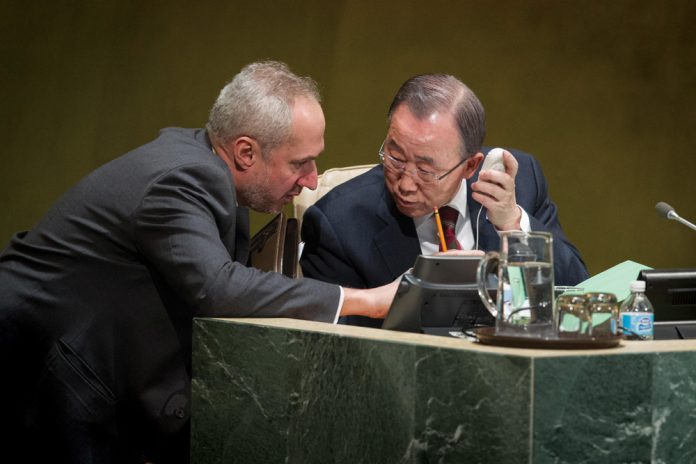With nearly half of the world’s workers employed in water-related sectors, sustainable access to safe water can change lives and livelihoods, the United Nations said during World Water Day held on 22 March.
“Water is central to human survival, the environment and the economy,” Ban said. He pointed out in his message that people with the least access to water and sanitation often also lack access to healthcare and stable jobs, perpetuating the cycle of poverty.
“The basic provision of adequate water, sanitation and hygiene services at home, at school and in the workplace enables a robust economy by contributing to a healthy and productive population and workforce,” added Ban, expressing concern about the gaps in accessing water and sanitation between men and women, cities and countryside, and the rich and the poor.
The importance of water in the job sector was marked with an official World Water Day event at the UN International Labour Organisation (ILO) in Geneva, convened by UN-Water on behalf of the UN inter-agency mechanism.
Secretary-General Ban Ki-moon noted that despite its paramount importance, water as a sector does not generally receive the attention it deserves
In his video message, Guy Ryder, ILO Director-General and Chair of UN-Water, called for “better water and better jobs”. He highlighted the situation of some 1.5 billion people who work in water-related sectors, many of whom are not recognised for the work they do, nor protected by basic labour rights.
As an example, he spoke about a woman from The Gambia who would spend much of her day fetching water, when she could have been working in the formal sector, had that water delivery been provided.
“Water is work,” Ryder said. “It requires workers for its safe and clean delivery, and at the same time, it can create and improve conditions of work.”









